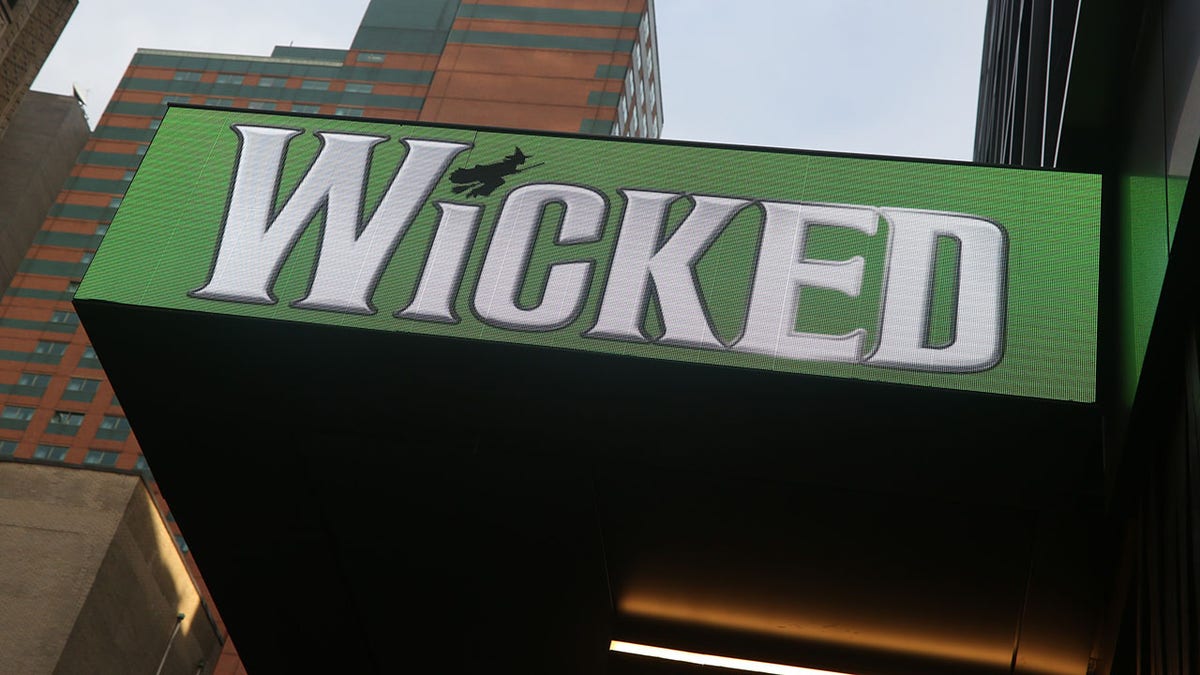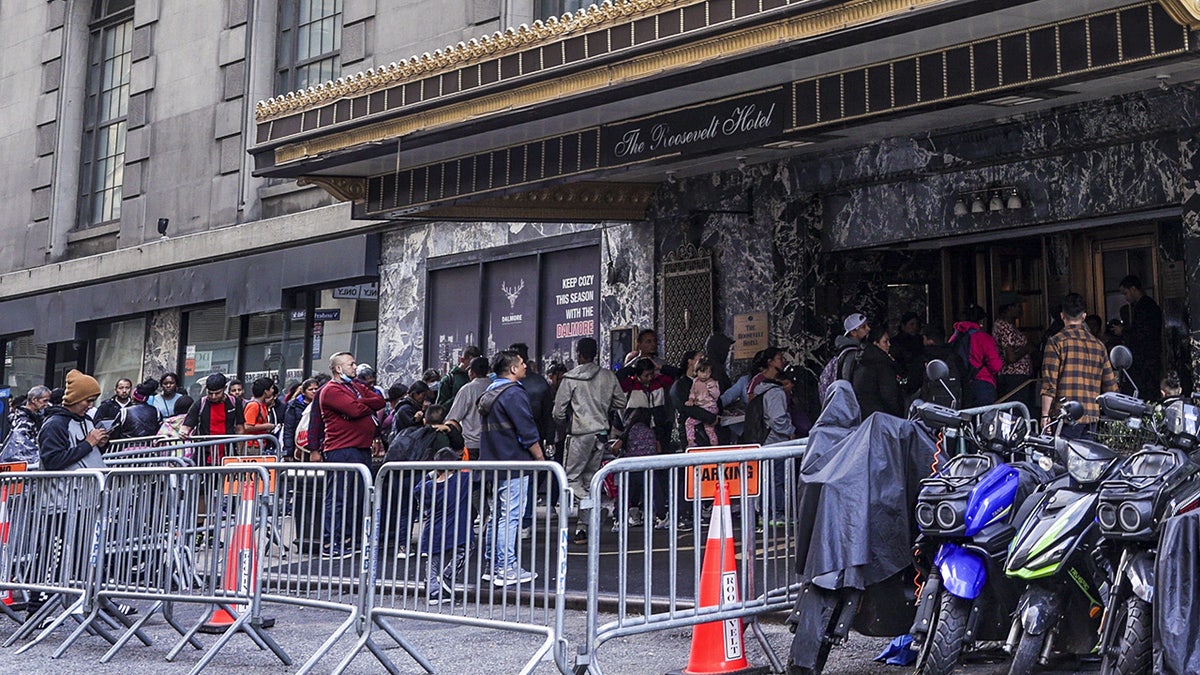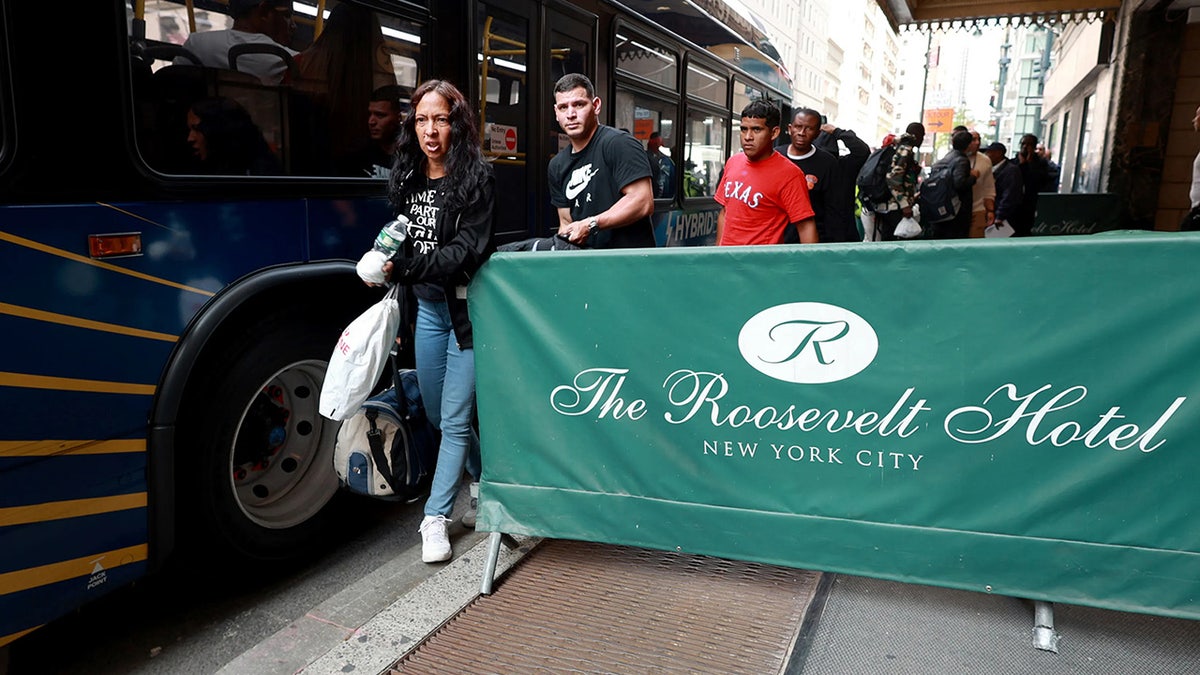NYC's iconic Roosevelt Hotel repurposed into migrant processing, housing hub
FOX 5 'Good Day New York's' Rosanna Scotto takes Fox Nation viewers inside NYC's iconic Roosevelt Hotel, which has become a processing hub for migrants in the Big Apple.
A hip hotel in New York City's Broadway District has been converted into a temporary migrant shelter as the Big Apple continues to grapple with an influx of migrants traveling to the city after crossing the U.S. southern border.
The Square Hotel, a boutique hotel located across from the Broadway theater currently playing the musical "Wicked," has been silently housing migrants after announcing it would be closing its doors without explanation, the New York Post reported.
"To our valued guests: it is with great sadness that we announce the Square Hotel will be closed for the foreseeable future. We appreciate your patronage and hope to welcome you back someday soon," the hotel wrote on its Facebook page.
The hotel, which once touted its Japanese restaurant, lobby bar and "sophisticated" decor, hardly resembles its previous self. It now reportedly has a National Guard soldier stationed at the entrance of the lobby who reportedly turns away tourists seeking a room for the night, according to the Post.
MAN STABBED OUTSIDE NYC MIGRANT SHELTER, 2 SUSPECTS BELIEVED TO BE INVOLVED: NYPD

NEW YORK, NEW YORK - FEBRUARY 19: A hotel across from The Gershwin Theater where the hit musical "Wicked" is playing has been converted into a migrant shelter. (Getty)
A sign in the lobby says that motor bikes chained in front of the hotel would be cut and removed. Many migrants use mopeds to make deliveries for food app companies since they cannot find other jobs without work permits.
The 141-room hotel sits three blocks from the famed Radio City Music Hall and is a five-minute walk to Times Square. A reservations agent for the hotel told Fox News Digital that bookings were suspended through July and will likely persist beyond that.
The Manhattan Institute's Nicole Gelinas told the Post that "lazy" hotel operators seemingly find it easier to take payments from the city to house migrants than book NYC tourists and keep the hotel fully operational.
"These hotels could be doing a fine tourist business right now, but they are being lazy, and a sure-thing 100-percent occupancy on the city dime, and without having to provide traditional hotel services, is just too good a deal to pass up," Gelinas told the outlet.

Asylum seekers line up in front of the historic Roosevelt Hotel, converted into a city-run shelter for newly arrived migrant families in New York City. (Selcuk Acar/Anadolu Agency via Getty Images)
Other critics fumed at the city officials for turning the district into a home for migrants, pointing to Madison Avenue's Roosevelt Hotel, which was also converted into a haven for migrants.
A Fox Nation special, "The Sanctuary Trap," took viewers inside the iconic hotel for an exclusive look at what has been dubbed the "new Ellis Island," revealing unrecognizable conditions from the once prominent hotel. The ballroom was converted into a medical triage room. Shelves full of baby food, diapers, hygiene kits and other items sat across from the lobby.
Photos taken from The New York Post captured migrants sleeping on the floor or lounging in chairs inside the building.

Migrants are pictured outside the Roosevelt Hotel, currently being used as a shelter, in Manhattan, New York. (Luiz C. Ribeiro/New York Daily News/Tribune News Service via Getty Images)
Hundreds of thousands of migrants have arrived in New York since 2022 amid a bussing program instituted by Texas Gov. Greg Abbott to bring attention to the border crisis and sanctuary city policies. The new migrants have strained New York City resources as officials have struggled to find suitable housing for them.
The city has shelled out millions of dollars to convert hotels into emergency shelters or processing centers to house the influx of people.
New York City Mayor Eric Adams says the crisis will cost the Big Apple at least $12 billion by the end of FY 2025.
